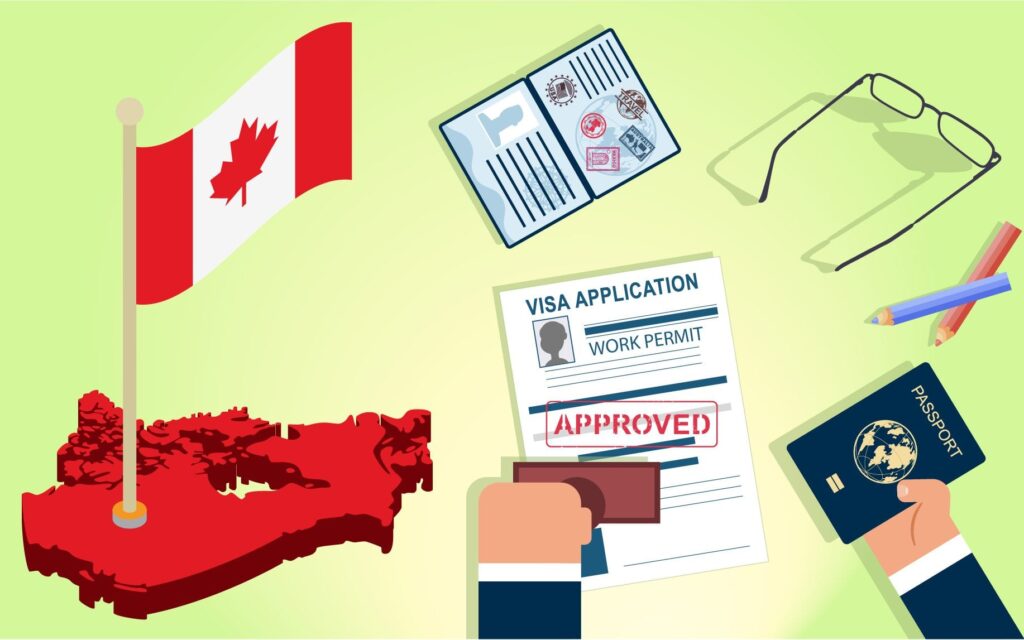+91 8247764749
Canada Work Permit
- Eostreoverseas
- Canada Work Permit


Employer-Specific Work Permit: This type of work permit is tied to a specific employer and job. To apply for this permit, you must have a valid job offer from a Canadian employer who has obtained a positive Labour Market Impact Assessment (LMIA) from Employment and Social Development Canada (ESDC), demonstrating that there is a need to hire a foreign worker for the position.
Open Work Permit: Unlike employer-specific permits, an open work permit allows you to work for any employer in Canada, except for certain restricted occupations or employers. Open work permits may be issued based on various factors, such as being a spouse or common-law partner of a skilled worker, a student, or a refugee claimant.
International Mobility Program (IMP): This program allows certain foreign workers to get work permits without the need for an LMIA. The IMP includes various streams such as the Intra-Company Transfer Program, the Global Talent Stream, and more.
Temporary Foreign Worker Program (TFWP): This program is designed to address temporary labor shortages in Canada. It requires employers to obtain a positive LMIA to hire foreign workers.
International Experience Canada (IEC): The IEC is a program that facilitates youth mobility and allows young people from certain countries to work and travel in Canada through bilateral agreements. It includes three categories: Working Holiday, Young Professionals, and International Co-op.
Post-Graduation Work Permit (PGWP): International students who have completed a program of study at a designated learning institution in Canada may be eligible for a PGWP. The PGWP allows them to work in Canada for a duration equivalent to the length of their study program, up to a maximum of three years.
Validity and Extensions: Work permits in Canada have a specific validity period, and extensions may be possible in some cases, depending on the type of permit and the applicant’s eligibility.
Work Permit Exemptions: Some individuals may be exempt from the requirement to obtain a work permit, such as certain business visitors, short-term workers, and certain types of foreign representatives.
Please note that immigration policies can change, and it’s important to verify the most up-to-date information from the official Canadian government website or consult with a qualified immigration professional for the latest requirements and procedures for obtaining a work permit in Canada.




